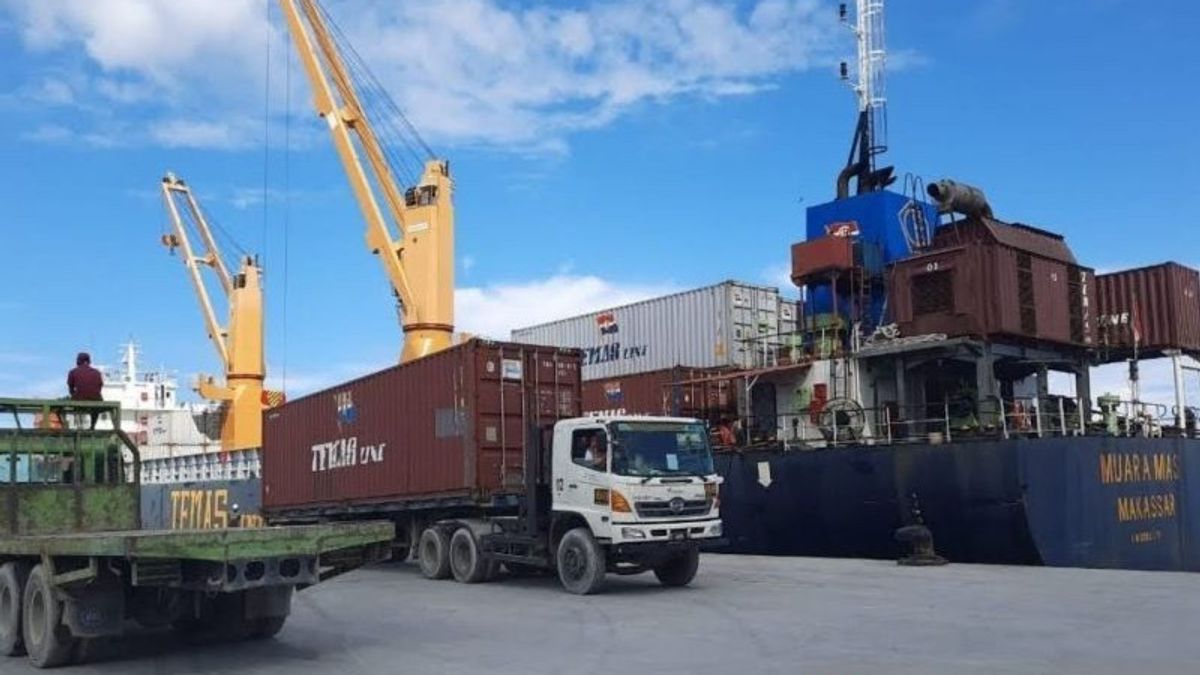JAKARTA - PT Pelabuhan Indonesia (Persero) or Pelindo managed to record a positive trend in operational performance.
In the third quarter of 2022, Pelindo recorded that the flow of containers reached 12.8 million TEUs, an increase of 2 percent compared to the previous year.
Meanwhile, the flow of goods was realized by 116 million tons, growing 6 percent compared to the previous year.
"With the continued transformation and improvement of services, we hope that the positive trend of Pelindo's performance will continue and can target the company that has been set until the end of 2022 can be fulfilled," said Pelindo President Director Arif Suhartono in an official statement, Thursday, November 17.
Arif Suhartono explained that the flow of ships in and out of ports reached 882 million GT or grew 1 percent compared to the previous year.
On the other hand, the flow of passengers reached 10.9 million people, an increase of 98 percent compared to the previous year, and the easing of the policy of limiting community mobilization was the main factor in increasing the flow of passengers.
He continued, the results of Pelindo's post-mer merger transformation began to be seen from the increase in performance and productivity of loading and unloading containers in a number of container terminals.
Increased loading and unloading productivity is measured by box parameters per ship per hour (BSH) and reduced port stay or ship dock time at the port as measured by the number of days.
For Pelindo, the shorter the dock time and loading and unloading time make operational costs more efficient, and it is hoped that ship traffic can increase. For customers, both the shipping line and the cargo owner can also benefit from greater cost efficiency and business opportunities," said Arif.
For Belawan Container Terminal (TPK) and Makassar TPK, he continued, the number of loading and unloading rose from 20 boxes per ship per hour to 34 to 45 boxes, even reaching 60 boxes during optimum.
The loading and unloading speed makes the ship's dock time decrease to half, from two days to just one day. Performance improvements also occur at the Ambon and Sorong TPK, where the dock time can be reduced from two days to one day.
"In addition, all of our container terminal services in the future will have the same service standards according to their respective classes, this of course facilitates control and monitoring for both us as operators and users of our services," added Arif.
After a year of mergers, Arif added, Pelindo launched an integrated container port operation system called the Nusantara Operating System Terminal (TOS).
This system is used to design, control, monitor, and make reports of all port activities such as loading and unloading, buildup, relocation, and gate in-gate out.
This new system has been used at the Tanjung Priok Container Terminal, Makassar Container Terminal, and will gradually be operated at other terminals in Indonesia.
The future business and service standard is expected to contribute to the gradual reduction in logistics costs. In the end, this logistics cost efficiency can help improve the national economy," concluded Arif.
The English, Chinese, Japanese, Arabic, and French versions are automatically generated by the AI. So there may still be inaccuracies in translating, please always see Indonesian as our main language. (system supported by DigitalSiber.id)









